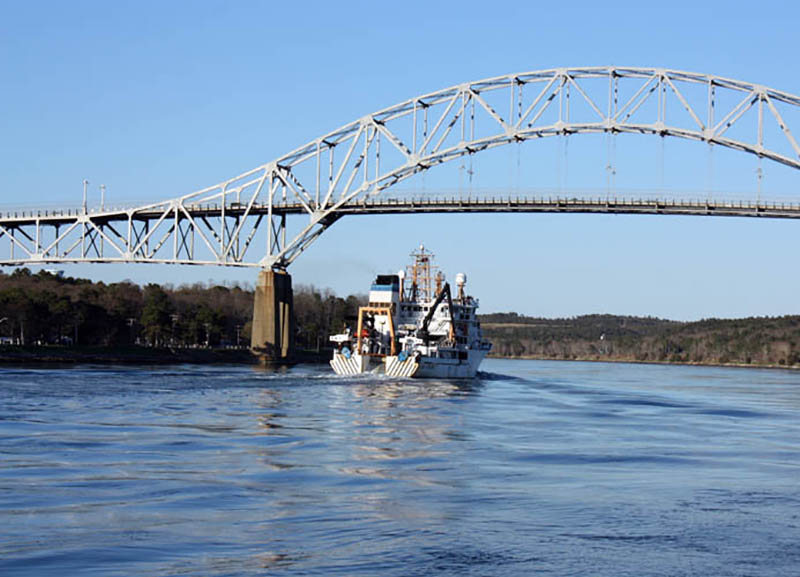To determine the true state of the cod stock in the Gulf of Maine, the Massachusetts senate is including $185,000 in its amended budget proposal to continue industry-based cod surveys.
The hope is that continued surveying will end the ongoing disagreement between commercial fishermen and fisheries scientists over the heath of the stock — and in turn what the annual quota should be. The program puts researchers from the commonwealth’s Division of Marine Fisheries onto commercial boats so commercial fishermen can help in the operation and get a look at the methods used in stock surveys.
“This is really one of the rays of hope, that we can produce science that is credible and also acceptable to the people that have to live with it,” said Senate Minority Leader Bruce Tarr of Gloucester in an interview with the Gloucester Times. Along with Assistant Majority Leader Mark Montigny, a Democrat from New Bedford, Tarr pushed to include the money in the Senate budget.
Tarr said the House budget only contains $125,000 to continue the surveys, but he hopes the increase will make it through the legislative committee tasked with forming the final budget that will go on to Gov. Charlie Baker.
The state has spent more than $500,000 trawling for cod as party of the study so far. In April, preliminary results of the survey — published in a Boston Globe story — indicated the region’s cod are at a historic low of about 80 percent less than the population from a decade ago.
In late May, a new study by seven scientists at NOAA’s Northeast Fisheries Science Center in Woods Hole, Mass., predicted that the warming of the Gulf of Maine will continue to push cod, haddock, pollock and other species north, adding to the dismal stock report news.
The fishing industry took issue with the findings.
“We’re appreciative and supportive of the state’s work and very much want the work to continue,” Vito Giacalone, policy director for the Gloucester-based Northeast Seafood Coalition, said at the time. “We’re not appreciative of the premature conclusions publicized by the scientists. It is this kind of scientific double standard that drives the loss of credibility of the science community in the eyes of industry.”
Matthew A. Beaton, secretary of the Executive Office of Energy and Environmental Affairs, publicly conceded that the published findings were premature and any definite conclusions about the status of the stock needed complete data from the full multiyear study.







.jpg.small.400x400.jpg)